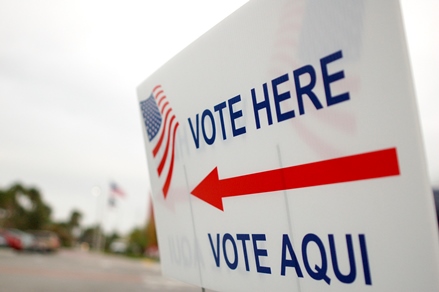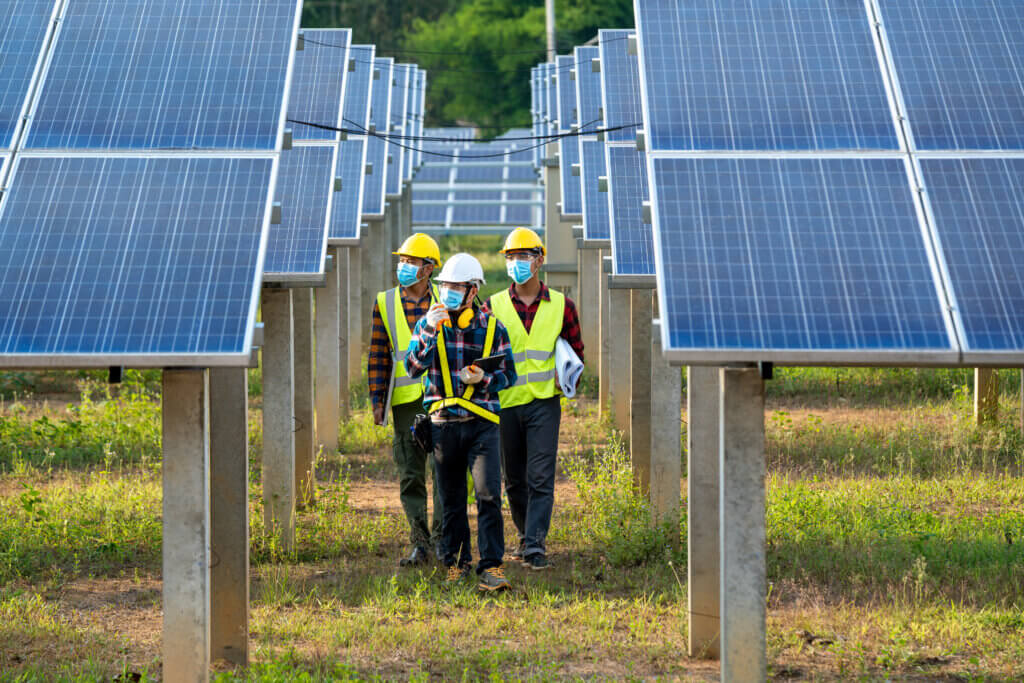For Latino voters, jobs and inflation are key
Latinos are the fastest growing racial and ethnic group in the U.S., with 62 million Latinos living in the United States, including 34.5 million eligible Latino voters.
Susana Barragán, Policy Analyst, Economic Policy Project, UnidosUS
Latinos’ unparalleled economic contribution is reflected in their high labor force participation rate and higher rates of entrepreneurship than their non-Hispanic counterparts. Latinos also spend more. As a group, Latinos are projected to hold $2.6 trillion in purchasing power over the next 3 years.
The Latino vote is especially crucial in this year’s midterm elections. As Democrats and Republicans battle over control of Congress, Latinos are a formidable voting bloc in states pivotal for Senate control: Arizona and Nevada. Yet, Latinos remain overlooked in conversations about the economy. To quote rom-com queen Julia Roberts: “Big mistake. Huge.”

When UnidosUS and Mi Familia Vota asked 2,750 Latino voters what are the most important issues that elected officials should address, voters consistently chose inflation, crime, and jobs as top priorities. Specifically:
- 46% of Latinos said inflation and the rising cost of living is an important issue that elected officials should address, making it the top overall most pressing issue identified.
- 85% of Latinos concerned about inflation said they are worried about food and basic living expenses going up.
- 29% of Latinos identified jobs and the economy as an important issue that elected officials should address, making it the third overall most pressing issue identified.
- 64% of Latinos that elected jobs and the economy are concerned that jobs do not pay enough and/or they must take a second job; 36% are concerned that layoffs are coming, or they will get their hours cut; and 29% point to the lack of workers means picking up extra shifts or hours.
It comes as no surprise that jobs are a top-of-mind issue for Latinos. The COVID-19 pandemic decimated many of the job sectors in which Latinos are disproportionately employed. One month into the COVID-19 pandemic in 2020, the Latino unemployment rate skyrocketed from 5.9% to 18.8%. In comparison, the national unemployment rate rose from 4.4% to 14.7% in the same period. The U.S. Department of Labor attributes Latinos’ high unemployment rate during the pandemic partly as a direct consequence of Latinos’ overrepresentation in in-person, low-wage occupations such as cleaning and maintenance; food preparation and serving; and transportation and moving.
Two years later, the labor market is recovering, but employment rates for Latinos remain behind the curve. At every point since March 2020, the Latino unemployment rate has been higher than the national rate. Today, Latinos’ unemployment rate stands at 4.5%, which is lower than the March 2020 rate, but still higher than the national unemployment rate of 3.7%. Then and now, Latino workers are struggling to make ends meet in low-wage occupations with large pay gaps, rampant wage theft, and insufficient labor protections. They are also least likely to have access to employment benefits like retirement accounts,health care, and paid family and sick leave.
Policymakers who would like a fuller economic rebound must be keenly aware of the labor force responsible for keeping it afloat in the first place. Latinos are speaking loudly and clearly about the need for good jobs.
Like much of the country, Latinos must now also contend with inflation—an issue hitting Latino families harder than most. One 2022 study found that the first stage of the inflation spike in 2020 impacted poorer households more than richer ones, while another 2022 study of inflation found that Blacks and Latinos are experiencing significantly higher inflation than the national average.
While the causes of inflation are complex, from supply chain issues to price gouging, it’s important to recognize that the remedies are clear. Because they address the increased costs of living, programs that are putting cash in people’s pockets, like the expanded Child Tax Credit (CTC), are a lifeline for struggling families. They are also widely supported across political party lines. Our 2022 poll showed that 70% of Latino voters strongly support making permanent the CTC expansions that increased the number of families eligible to receive the credit and reduced child poverty by 46% in 2021. Additional polling shows that for women under 50 and Black voters, the CTC is a popular solution to address the economic crisis families face.
When Latinos express concerns, the safe bet is to listen and talk about what works:
- The CTC and other supports for families to ensure that low-income people and Latinos can stay afloat amidst a cost-of-living crisis.
- Increased access to safety net measures that they may not be able to access through their employment like paid family and medical leave, retirement benefits, and affordable and quality health care coverage.
- Improved Latinos’ economic security by improving the quality of jobs Latinos are overrepresented in through stronger worker protections and narrowing the Latino pay gap.
For more information contact Susana Barragán at [email protected].




